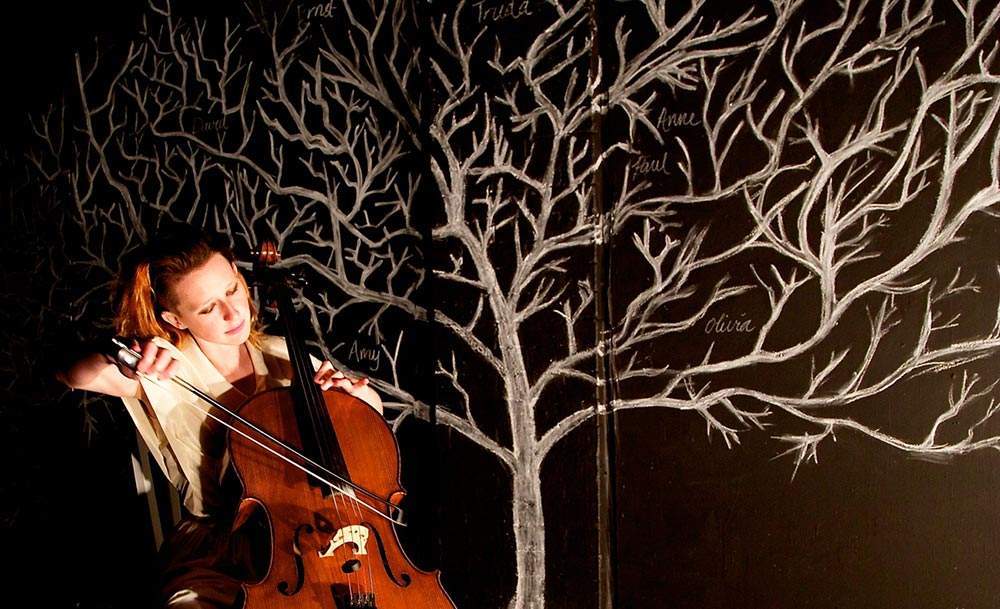My Name Is Truda Vitz – Somersault Theatre Company
A modern-day Sydneysider steps into the shoes of the grandmother she never met.
Overview
Staging the stories of holocaust survivors can be tricky business, particularly when pivoting between multiple generations. But theatre can also be a therapeutic means of exorcising the demons of history and finding glimmers of optimism.
Written and performed by Olivia Satchell, My Name is Truda Vitz at the TAP Gallery, is a musical and semibiographical play that manages to strike the right levels of light and shade. Directed by Pierce Wilcox, it is a profoundly personal tale that sees a modern-day Sydneysider step into the shoes of the grandmother she never met.
In many ways, this production occupies the imaginative space of what could have been. In terms of the facts, Truda Vitz, a Czech-Viennese Jew, fled Austria upon the outbreak of World War Two and lived as an Enemy Alien in England for several years. However, Satchell invents fictional details, bridging the gaps between actual events and elusive recounts in order to enrich the legacy of her grandmother.
As the branches of her family tree unfurl, Satchell meditates on the effects of transgenerational trauma. Everything is in first person as she subtly shifts between characters, re-enacting past conversations and rehearsing new ones. However, she is most relaxed in her own skin, speaking candidly and self-reflexively about writing and performing the play as well as anticipating its reception.
The transitions between scene and character are aided by musical interludes. An assured cellist, Satchell plays mournful, nostalgic and upbeat pieces that redirect the mood and allow space for reflection. The instrument is also well-utilised as a prop. As Satchell handles it with utmost care, the cello becomes a convincing human companion, whether it be a dance partner or a sleeping body.
Satchell’s tightly worded script is rich with dates and details, roaming between Vienna, London, Sydney and Dunedin. This may account for the occasional stumble or a slightly laboured delivery at times. Nevertheless, there are plenty of poetic phrases and memorable anecdotes scattered throughout. For example, Satchell affectionately speaks about Truda's habit of adding jam to strong coffee. There's also the way she describes the aged hands of Truda’s dying mother as “fingers dipped in the sun” while tenderly cradling the cello. Played out against Isabella Andronos's elegant set design, it is a touching image.
Driven by a spirit of curiosity, the bravery of Satchell’s script and performance is commendable, not only for its theatrical scope but also for its personal interrogation. At one point, she admits that although Truda's lover, David, may not have actually read her Goethe's love poems, somewhere they were read to someone. In this way, My Name Is Truda navigates the twists and turns of familial and romantic love. It speaks to our perpetual need to be affirmed and make sense of who we are and where we come from.





